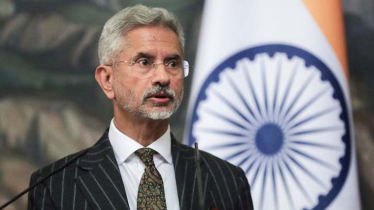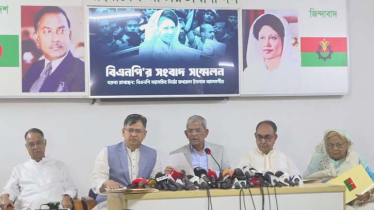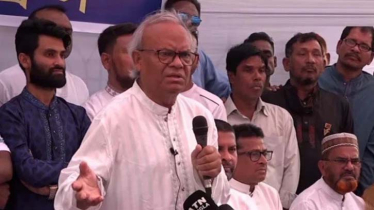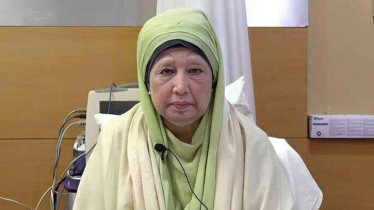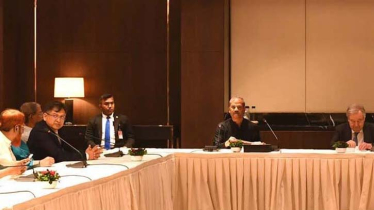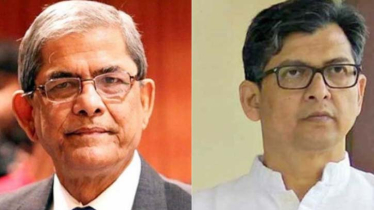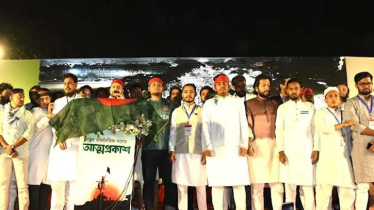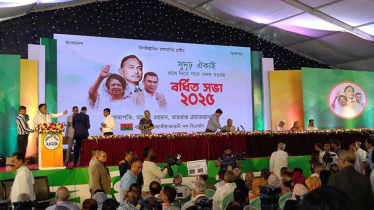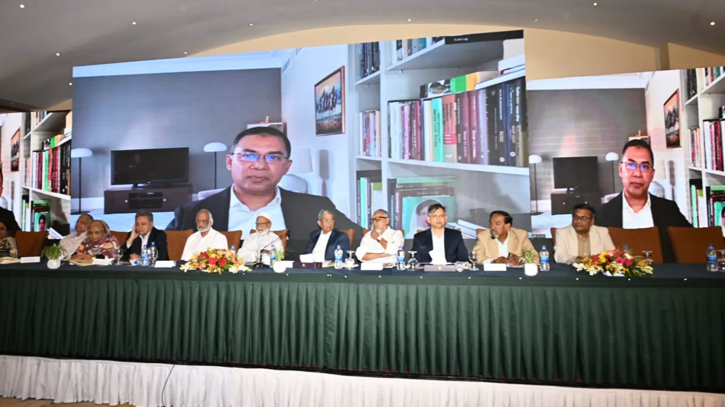
Photo: Collected
BNP Acting Chairman Tarique Rahman on Thursday said his party, if returns to power, will build Bangladesh in such a way so that no one, not even the Prime Minister, can abuse power or emerge as an autocrat.
Speaking virtually at a seminar from London, he also said their party will transform the country into a democratic and humane nation, ensuring people’s basic human rights, freedom of expression and press freedom.
“We want to ensure, and will do our utmost, so that no person, not even the Prime Minister, will be able to abuse power and become a dictator in future Bangladesh,” the BNP leader said.
He also said from the highest levels of the state to every level of government, accountability and the rule of law would be upheld, ensuring that no one is above the law.
Despite differences in political ideologies, Tarique noted that a unity had already been forged among democratic political parties in the country to build a democratic Bangladesh.
“We are all united in our commitment to rebuild Bangladesh in such a way that autocrats or fascists will never be able to raise their heads again,” he said.
Tarique also expressed the BNP’s vision of a Bangladesh where no one could infringe upon the rights and freedoms of any citizen. “We all want a safe and secure Bangladesh where people's aspirations are reflected, and where an elected and accountable government ensures people's ownership and participation.”
During Sheikh Hasina's fascism, the BNP leader said, the nation had witnessed the so-called politics of development, which was primarily based on corruption, misrule, and criminalisation.
“In contrast, if BNP forms the government through the people's vote, you will witness the politics of people's empowerment and partnership, guided by our 31-point outline. Rule of law, human rights and freedom of speech will be the basis of our state governance,” he assured.
The BNP organised a seminar on its 31-point outline for the reform of the state structure at a city hotel. Diplomats from various foreign missions stationed in Dhaka, members of civil society, and representatives from different political parties attended the seminar.
Tarique said almost all the reform proposals currently being discussed in the country are included in BNP’s 31-point outline. “I understand the purpose of reform as not merely changing a few sentences of the Constitution, but transforming the fortunes of the people.
To ensure that a dictatorial system does not repeat in Bangladesh, he said BNP wants to include a provision in the constitution that no one can serve as Prime Minister for more than two consecutive terms.
The BNP leader also said his party wants a balance of power between the legislative, judicial, and executive branches. “We aim to introduce a bicameral parliamentary system to ensure the representation and participation of society's intellectuals in the governance of the state.”
He said an inclusive, liberal, and democratic Bangladesh must be built. “We all have a long way to go in unison. The pace of this march must be swift but steady, with specific goals.”
Tarique said his party wishes to restore freedom of expression for every citizen, regardless of their political affiliation. “Just like two decades ago, during the BNP government, the media in Bangladesh could fearlessly criticise the government and even draw cartoons.’
He recalled that a section of the media had published baseless reports about the then Prime Minister Begum Khaleda Zia and him, conducting a media trial and propaganda campaign. “But we didn’t gag any media, harass anyone, or send any editor to jail in return.
In the future, Tarique said, BNP will ensure the freedom of expression for all citizens, particularly human rights activists, journalists, and social influencers. “But we expect an impartial and responsible role from the media.
He also promised that BNP would eliminate extrajudicial killings, enforced disappearances, excessive use of force, politically motivated cases and trials, mass arrests without warrants, gross human rights violations, and the culture of fear that has been fostered over the last 16 years.
“We will strive to ensure the human rights and fundamental freedoms of every citizen in line with the Universal Declaration of Human Rights adopted by the United Nations,” the BNP leader said.
He claimed that in the three months following the fall of fascism, BNP had taken numerous initiatives to modernise politics, all of which have been nurtured by the grassroots of BNP across the country.
The BNP leader said whenever anyone has committed crimes in the name of BNP, the party has taken swift organisational action as soon as it became known.
Tarique also said Awami League leaders and activists were involved in crimes such as murder, assault, rape, and extortion during the 16-year rule of Sheikh Hasina, yet no action was taken against them by the party.
“As recent incidents show, even after the killing of more than one and a half thousand democracy-loving people in the mass upsurge, no leader of the Awami League has shown any remorse or self-criticism,” he said.
Speaking at the programme, BNP Secretary General Mirza Fakhrul Islam Alamgir said his party, along with over 50 other parties, had prepared the 31-point state reform proposal during the simultaneous movement against the fascist regime of Sheikh Hasina.
He noted that the interim government, formed following the ousting of Hasina's regime, has already established various commissions to oversee state reforms.
“We believe the reform proposals that may emerge from these commissions will closely align with the 31-point outline. Therefore, we have decided to present the 31-point framework to the public once again,” the BNP leader said.
On July 13, 2023, the BNP unveiled a 31-point outline aimed at "reforming" the constitution and state system, as well as ensuring the economic emancipation of the people. This proposal was developed in consultation with other parties that had participated in the simultaneous movement against the Awami League government.
Messenger/Fameema

